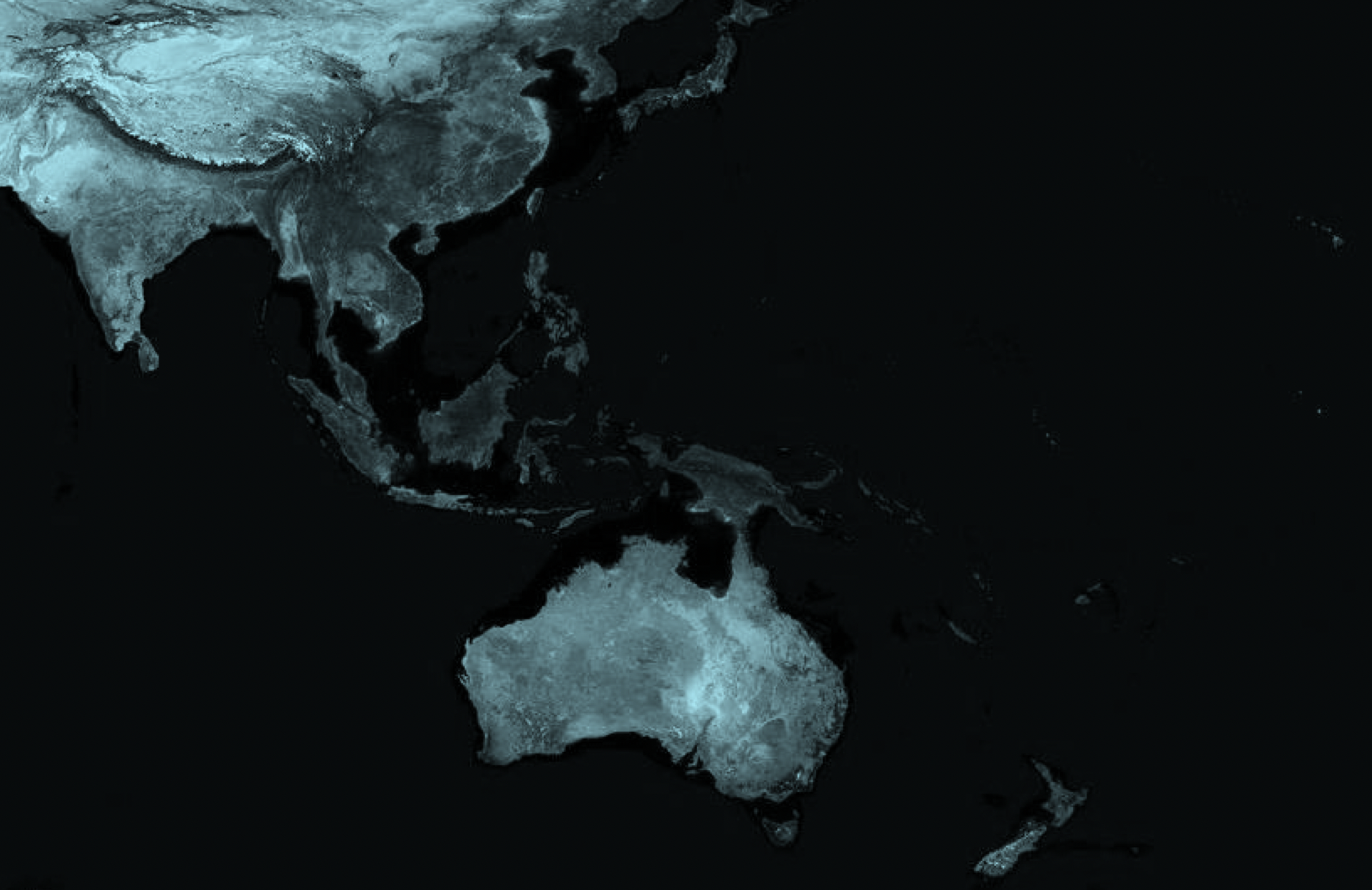What the Re-Focusing of Australia on Direct Defense Means for Its Allies
The strategic shift from the land wars to crisis management with peer competitors is seeing a significant shift in the alliance structures of the liberal democracies.
The rise of the 21stcentury authoritarian states have seen them operating within the liberal democracies politically and economically in ways the Soviet Union never could.
This means that the liberal democracies face wide ranging security as well as defense challenges at the same time.
Their competitors are working to avoid significant high-end conflict but to have expanded their sphere of influence by pushing back on the zone of acceptable political-military and political economic activities.
The past two decades of global engagement by the liberal democracies in support of American-led global counter-terrorism is being replaced by a clearer focus of attention on their own defense and upon thei rown regional contexts for defense and security.
The last twenty years of globalization and the assumption that the end of history was seeing the eradication of global authoritarian competitors to the United States and its allies has been shattered.
What will take its place is not clear, and is a work in progress.
But what is clear is that key allies need to take key responsibilities for enhanced direct defense and as they do so, the United States’s role will change significantly.
If the United States wants to lead an effort for the defense of the “West,” it will be doing so less as a superpower than as the big brother which can bring relevant military capabilities and crisis management skills to the competition.
This will require a continued process of military transformation but also by shaping a political-diplomatic capability not seen in Washington for a long time.
It will mean as well working new concepts and approaches to crisis management across the conflict spectrum which can constrain the 21stcentury authoritarians and not let them dominate gray zone and hybrid warfare operations which have pushed the zone of acceptable tools of reshaping their influence further outward into a reshaping of global politics.
In other words, we are entering a new phase of history, one which is in the process of being constructed with no manuals lying around to guide us.
And the liberal democracies are seeking to do so when internal crises are the order of the day in the UK, the US and in Europe.
What this means for Australia was laid out in Dr. Andrew Carr’s presentation to the Williams Foundation Seminar on April 11, 2019.

Carr noted that “As part of the West’s victory lap after the Cold War, we declared an interest in global peace and prosperity. We claimed an interest in operating virtually anywhere on the globe, no matter who it antagonised or how remote from our own nations.
“What is happening today in Eastern Europe by Russia or the South China Sea by China is that the new authoritarians are challenging this claim to near-limitless interests. What they are doing is declaring their judgement that these regions do not seriously matter for the West. And they are right.”
He argued that the liberal democracies needed to sort through what their core interests really are and put the fundamental effort in to protect those interests. Otherwise, we will suffer loss of credibility as we seek to inflate what we care about and operate beyond the reach of our capabilities.
Put another way, the 21stcentury authoritarians have called our bluff. And they are pushing out what they perceive to be their core interests and challenge us to respond in an effective manner.
He argued that we need to craft a strategy and approach “that is founded upon protecting that which is most important to us, that plays to our strengths and which will allow us to re-set the momentum in the game. One that re-connects our interests and available resources, instead of the last decade or two of ‘strategic wandering’ we have had.”
From this perspective, he then discussed how best to understand the challenge to Australia in terms of defense self-reliance.
He added that Australians needed to make their own continent more of focus of attention in the strategic reset.
“There are both strategic and political reasons we need to make the continent a greater focus.
The first and most obvious one, is that our continent is no longer secure. This is the big change for Australia from the Post-Cold War years. Though the likelihood of direct attack is very low, it can’t be entirely dismissed. As such, we need a sense of how we could and would respond.
“Even putting scenarios of invasion aside, there is a possibility of serious strategic pressure being applied against us. Already it is possible for China to apply overflight and harassment efforts to parts of our continent as they do to Japan, Taiwan and South Korea on a regular basis.
“Then there are our alliance commitments which I argue should also drive more of a continental focus. Everyone knows ANZUS’s famous Article 4, where the parties declare they will ‘act to meet the common danger’.
“What is far less known is Article 2. To quote:
‘In order more effectively to achieve the objective of this Treaty the Parties separately and jointly by means of continuous and effective self-help and mutual aid will maintain and develop their individual and collective capacity to resist armed attack.’
“Without the ability to resist armed attack individually, we are in breech of ANZUS. This is not just about the technicalities of the treaty. America under its current and previous President has demonstrated strong concerns about burden sharing and allies pulling their weight. Their views reflect an American public which feels taken for granted. One that has sacrificed there, so we may be safe here.
“Equally, there is a need in this new Asia to think about how best to use the continent to the mutual aid of ourselves and our allies. For most of the history of the alliance, the continent was the place we departed from. In the future, it may be the place we begin at. The foundation of a different kind of US presence in Asia, and a staging point for high-intensity operations.
“Finally, there is a domestic reason to re-focus on continental security. Though the Australian public remain supportive of the US alliance, the impact of President Trump is sapping support. Demonstrating that the alliance is foremost a means of protecting people’s homes is a way to re-assure and strengthen the foundations of ANZUS, our defence posture and our call on taxpayer resources.
“We therefore have strategic, legal and political reasons to re-orient our attention at this point to thinking about the security of the continent.”
He cautioned that this was hardly about fortress Australia or an inward isolationist approach to continental defense and security. But only by having a secure continent can Australia not only protect itself but provide for the kind of allied engagement which protects collective liberal democratic interests.
“It is a position which takes seriously the idea that we may be early into a half-century or more of strategic competition. This means knowing what we will fight to protect and how we can do so. And then being able to go forward from a secure continent. That is what a return to fundamentals means.
“To do otherwise, to keep focusing on what we can do at the furthest limits from our core interests, attempting merely to hold firm to the status quo is to risk our own version of a grey zone style crisis. A world where we are making commitments to our allies abroad that we can’t be sure future government’s and the Australian public will want to keep.
“Nor does this extended approach make sense in the face of our specific adversary on the field today. A strategy of simply trying to give ‘110%’, year in and year out, by tired and debt-ridden Western nations, finding ourselves always on the defence against a better resourced and fresher People’s Republic of China is not a winning approach.”
The return of geography in the defense of Australia is a key piece of the evolving strategic competition in the Pacific. Australian’s need to rework how they operate their military across their continent but also shape new ways to facilitate strategic engagement by allies as well.
“We must return the discussion of geography to our strategic debates. Doing so quickly makes irrelevant the question of a ‘choice’ about the US or China. It also demonstrates the absurdity of a mid-sized nation wanting to exert global influence while its own island is increasingly at risk. Not because of who we are, but where we are, and the value of what we claim.
“We need to work out how we can use this unique platform of ours to give America a sustainable and enduring position to project power into Asia. How might new capabilities such as the F-35, in conjunction with partners such as Japan offer new means of cooperation.
“Beginning from a secure foundation on our northern shores that looks north to Asia and west into the Indian Ocean. What roles should Australia play in supporting and sustaining this very different picture of the ANZUS alliance?
“We need to work out how to exert the maximum strategic impact from our geography. Because it is quite possible that we will need to be reliant on ourselves much more often. Facing off against low-level political and strategic pressure from 21st century authoritarian powers, perhaps even a direct military threat. How can just 25 million people defend 10% of the world’s surface? There are answers there, but we need to learn what our geography can tell us.”
In effect, what Carr was reworking was the language to describe not just the Australian way ahead in dealing with its own defense, but a fundamental need for the United States and Australia’s allies more generally to focus on the core capabilities necessary to deal with the long-term competition the 21stcentury authoritarian powers have put in place.
In other words, we are talking about a significant historical shift, not a simple adjustment to the approach followed by the liberal democracies operating globally against piecemeal threats. Rather, we were facing fundamental threats to our core values and way of life, and we better clearly focus on how best over the mid to long-term shape an effective way ahead.
“Defending ourselves is our task and our primary responsibility. We will build alliance cooperation on top of this, we will seek to use our geography to support and sustain a regional order that has been very valuable to us. But what we do alone is not the exception, but a fundamental part of a re-invigorated, and resilient approach.”
ACARR - WFS Talk - Def Self Reliance

